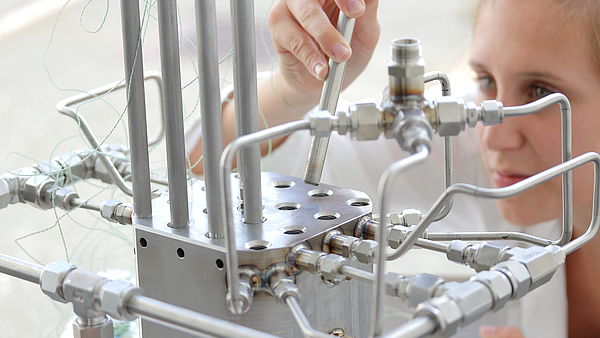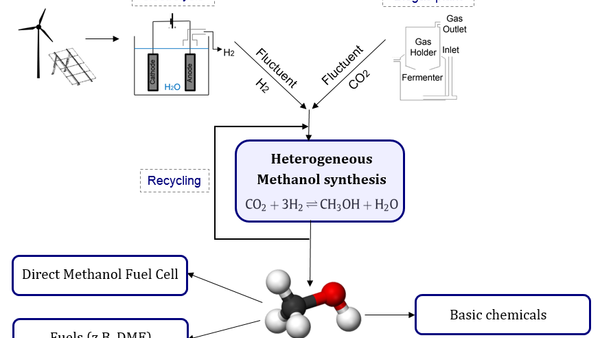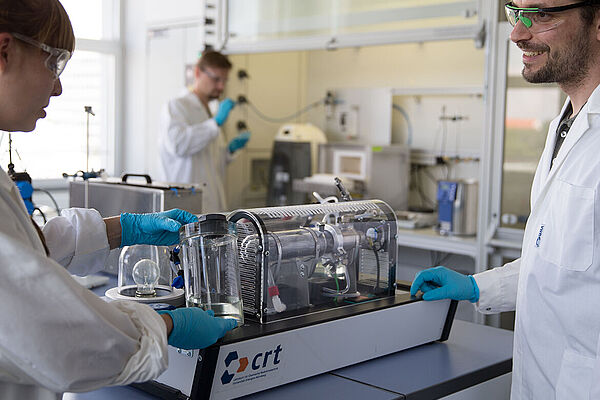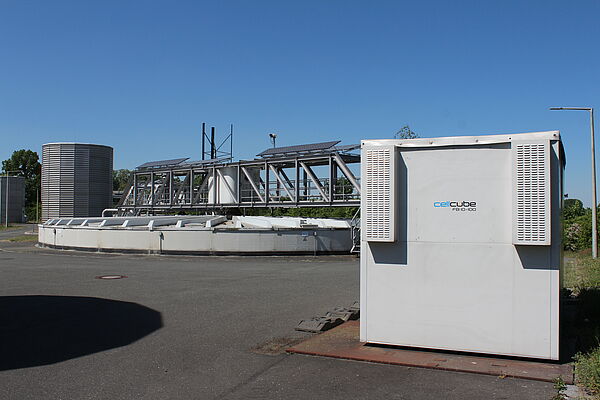Power-to-Gas/Liquid
The hydrogenation of carbon dioxide enables energy to be stored in the form of an irreversible conversion of hydrogen into a conventional energy carrier.
This results in important basic chemicals such as methanol or formic acid (power-to-liquid). In contrast to pure hydrogen, these carbon-based hydrogen storages can be stored at room temperature and ambient pressure. Catalytic hydrogenation takes place under mild conditions.
It is also possible to produce methane (power-to-gas) for use as SNG (Synthetic Natural Gas), which can be fed into the existing natural gas network.
A special added value is created because the climate-damaging waste product carbon dioxide, which is produced in large quantities, is bounded and at the same time allows hydrogen to be transported by means of liquid carrier molecules or in existing natural gas infrastructure.
The subproject focuses primarily on new catalyst systems whose properties are suitable for use under the desired reaction conditions. In methanization, catalysts and reactor concepts will be investigated that allow dynamic synthesis gas generation.






